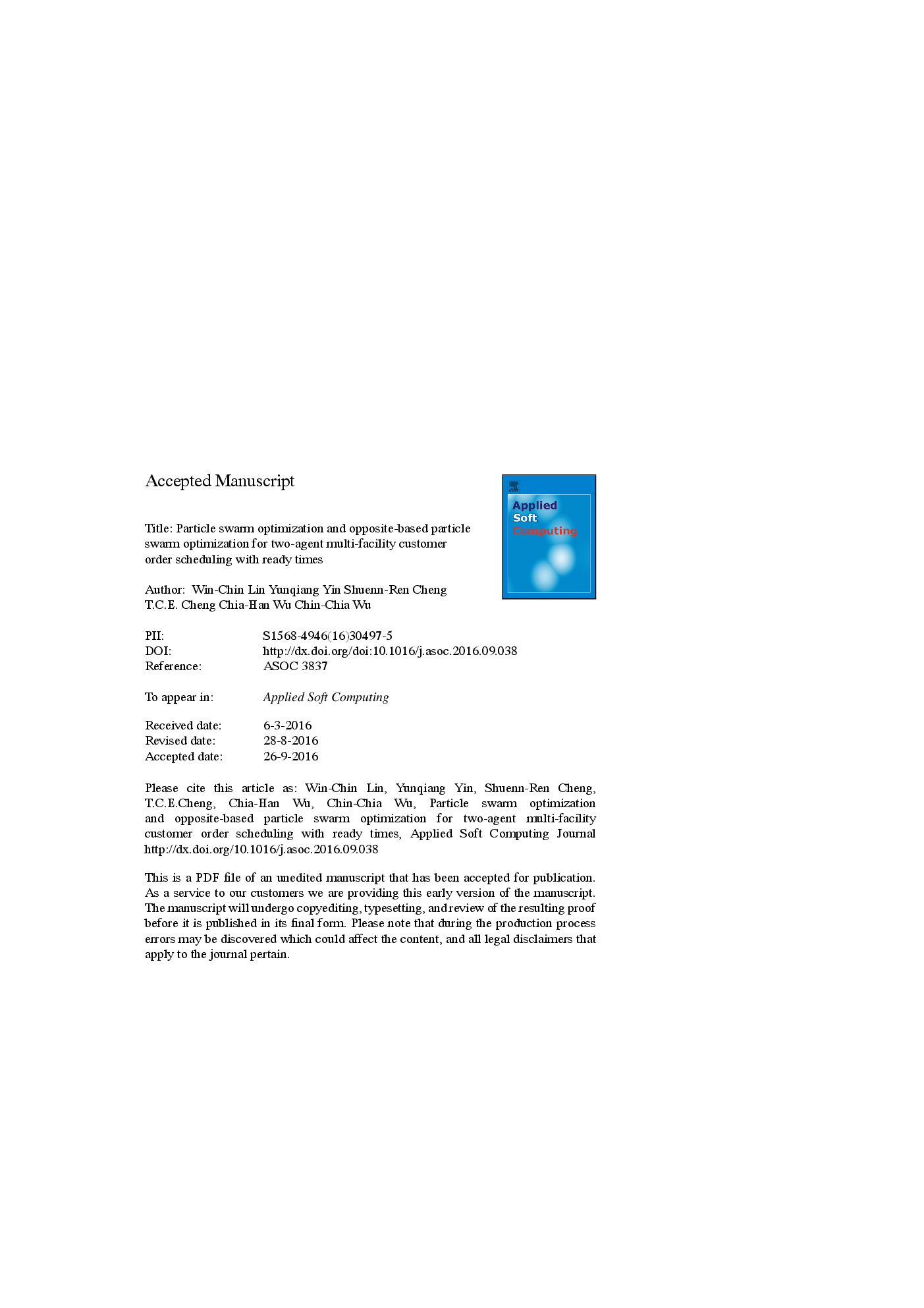ترجمه فارسی عنوان مقاله
بهینه سازی ذرات و بهینه سازی ذرات بر مبنای مخالف برای برنامه ریزی مشتری چند منظوره چند منظوره با زمان آماده
عنوان انگلیسی
Particle swarm optimization and opposite-based particle swarm optimization for two-agent multi-facility customer order scheduling with ready times
| کد مقاله | سال انتشار | تعداد صفحات مقاله انگلیسی |
|---|---|---|
| 107578 | 2017 | 31 صفحه PDF |
منبع

Publisher : Elsevier - Science Direct (الزویر - ساینس دایرکت)
Journal : Applied Soft Computing, Volume 52, March 2017, Pages 877-884

